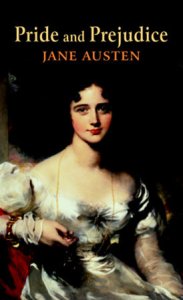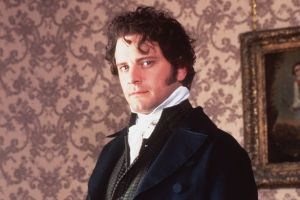Picking up where I left off a couple weeks ago, here’s a few more books that have been meaningful or influential to me.

I went through a serious classics phase in high school. I’m sure it had something to do with the fact that we read a lot of classic plays and novels around that time, but I went above and beyond. For a while, I had starry eyed visions of reading all of the books on any “100 greatest classics” list.
At any rate, one of my absolute favorites to this day is Pride and Prejudice. It probably surprises no one, as it has everything I gush over in a good novel – romance, mystery, unrequited love, comedy, Mr Darcy…
Oh, come on. Anyone who has read Pride and Prejudice is in want of their own Mr Darcy after reading it, even more so if you’ve ever watched the BBC adaptation.

If you don’t want to be courted by Mr Darcy’s smoldering glare, aristocratic good looks and accidental classist remarks, we’re done here. I have nothing for you.
(Runner up in this category would be Emma. Also a fantastic read, and the BBC adaptation is also equally delightful, though lacking in Colin Firth)

I remember the day that I finished Wuthering Heights. I was sitting in my dad’s chair in the afternoon, and I let out a deep sigh. This might be my favorite book ever.
Don’t get me wrong, I understood how really messed up the book was. I wasn’t swooning over Heathcliff, and Cathy was kind of a petulant brat. But I loved the novel nonetheless. Maybe it appealed to the part of me that likes soap operas, except this one is more demented slash possibly incestuous … oh wait, that’s pretty soap opera-like too.
Unlike the relative lightheartedness of Pride and Prejudice, Wuthering Heights is grim. Even the sort of happy ending is bleak at best, because the really super tortured generation has died off and the slightly less tortured generation can now rebuild. So I guess I understand why people might not be as in love with the book as I am. But as a kid, I also liked to read obituaries, so clearly I’ve got a bit of a taste for the grim.

I debated whether to lump The Hobbit in with the classics or with the fantasy books. More than anything, this book will always be a sentimental favorite.
The first time I “read” this book, I didn’t read it myself – my dad read it to me. I can’t remember how old I was, but I was definitely in grade school, and I think we did this because of some “read to your kid for X minutes” incentive.
I would crawl onto my parents’ bed with my dad, sometimes with an apple (not sure why I remember that detail of all things), and he would read The Hobbit to me. I’d lay my head on his chest, and I could feel the vibration of his voice as he read to me.
It’s honestly one of my favorite memories ever. I didn’t come back to The Hobbit again until I was in high school and Lord of the Rings was popular. But I loved it then, and it likely has something to do with my enjoyment of fantasy now.
Also, the book is way, way, way better than the movie adaptation.
